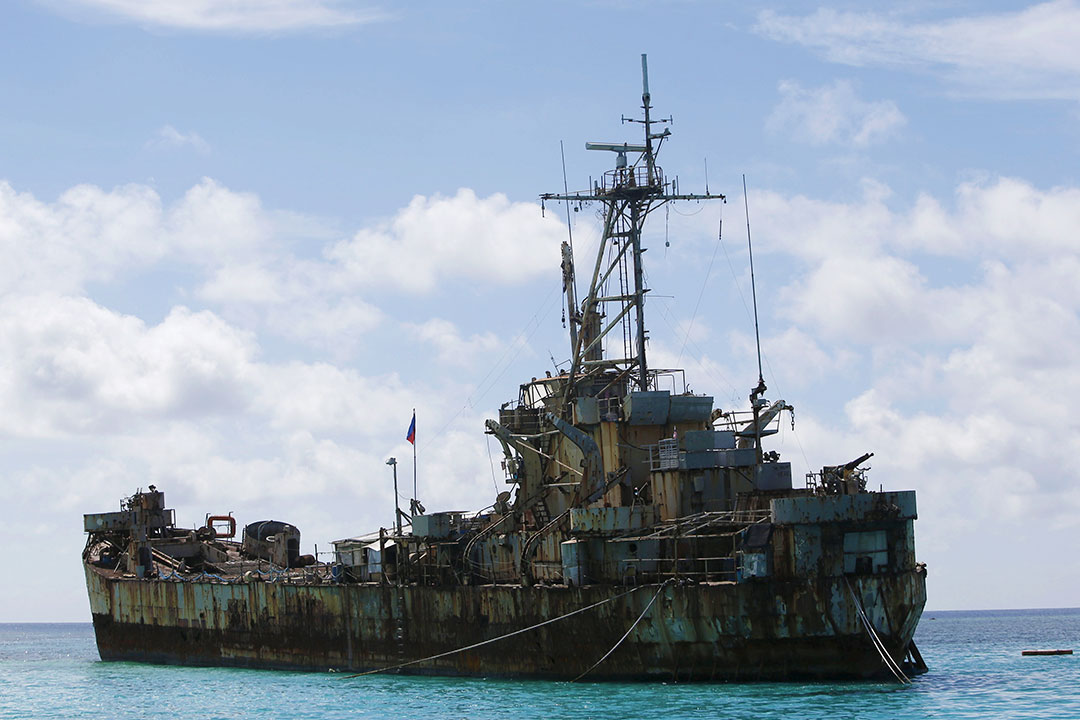China urges Manila not to ‘backpedal’ on deal

By John Victor D. Ordoñez, Reporter
CHINA has urged the Philippines not to “backpedal” or do anything that would complicate the situation in the South China Sea after both countries agreed on an arrangement for Manila’s resupply missions to Second Thomas Shoal.
“We take note that the Philippine side said it’s ready to implement the arrangement it reached with China,” Mao Ning, spokesperson of the Chinese Foreign Ministry, told a news briefing on Tuesday evening, based on a transcript posted on the agency’s website. “We hope the Philippines will keep its word.”
She added that the “provisional arrangement” agreed upon during the July 2 bilateral talks in Manila was an “active effort China made to keep the situation under control.”
The Philippine Department of Foreign Affairs (DFA) did not immediately reply to WhatsApp group messages from reporters seeking comment.
China has said it would only allow Philippine resupply missions to the shoal, where Manila keeps a handful of soldiers on a grounded ship, if the Philippines informs it in advance.
The DFA said Manila had never agreed to prior notification during talks with Chinese officials.
Both parties have also agreed to set up new lines of communication to improve their handling of sea disputes.
“The Marcos administration should now accept that any dealings with Beijing must be transparent,” Michael Henry Ll. Yusingco, a fellow at the Ateneo de Manila University Policy Center, said in a Facebook Messenger chat.
“The details of any deal or arrangement must not be kept from the public, and the administration should not leave any room for Beijing to craft their own version of the agreed terms,” he added.
“Beijing believes that the accommodations made by the previous administration in Manila marked a new baseline understanding, and it does not want to retreat from that position,” Raymond M. Powell, a fellow at Stanford University’s Gordian Knot Center for National Security Innovation, said in an X message.
“It believes that Manila previously acquiesced to its demands. Even though there was never a formal signed agreement, Beijing believes the ‘gentlemen’s agreement’ is binding upon the Philippines,” he added.
President Ferdinand R. Marcos, Jr. in his third address to Congress on Monday said the Philippines would seek to deescalate tensions in the South China Sea “without compromising our position and our principles.”
“The Philippines cannot yield,” he said. “The Philippines cannot waver… The West Philippine Sea is ours,” he added, referring to areas of the sea within the country’s exclusive economic zone.
Chinese Coast Guard forces with bladed weapons on June 17 boarded Philippine rubber boats and looted several rifles stored in gun cases, actions that Manila’s military chief Romeo S. Brawner, Jr. said only “pirates” do.
A Filipino Navy sailor lost a thumb during the encounter.
US Secretary of State Antony John Blinken and Defense Secretary Lloyd J. Austin III are set to meet with Philippine Foreign Affairs Secretary Enrique A. Manalo and Defense Secretary Gilberto Eduardo C. Teodoro, Jr. in Manila on July 30 to discuss maritime and security issues.
China claims more than 80% of the South China Sea, overlapping with the exclusive economic zones of Vietnam, Malaysia, Brunei, Indonesia and the Philippines.
A United Nations-backed tribunal in 2016 voided China’s claim over the waterway for being illegal. Beijing has ignored the ruling.
About $3 trillion worth of trade passes through the South China Sea annually, and it is believed to be rich in oil and natural gas deposits, apart from fish stocks.
Meanwhile, the Philippines’ National Security Council said Manila and Beijing need consent from each other before they can publicize the details of their arrangement on resupply missions.
“The understanding should not be issued in public unless there is consent from both sides,” National Security Adviser Eduardo M. Año told a news briefing streamed live on YouTube.
“We did not agree to anything that would undermine our rights in the West Philippine Sea,” he said, adding that the national interest had not been compromised.



